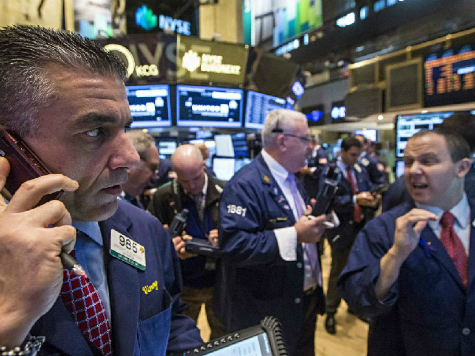
Total hedge fund assets surged to set a record of $2.7 trillion in the first quarter of 2014, as investors allocated $26.3 billion of new capital to the industry, the most since the second quarter of 2011.
If the trend holds for the rest of 2014, $105 billion will have flowed into the industry by 2015, meaning new assets will have had their best year since 2007, just before the 2008 Financial Crisis.
Hedge fund performance has trailed the return from passive investing in the Standard & Poor’s 500 Index (S&P500) for five straight years, but the top 25 managers earned a record $21.15 billion in 2013. Each of the last two times that hedge funds raised this much money, it indicated a market top.
Thirty years ago, the concept of hedge funds meant that investments were balanced with half long ownership of stocks and half selling short stocks. The idea was to eliminate market volatility up and down and concentrate on fundamental investing.
The concept was expanded when fund managers realized they could charge an annual management fee of 2% of an investor’s total asset value while also taking an additional 20% of profits. This is wildly more attractive than the 1% flat management fee typically charged by an SEC-registered money managers or the even lower mutual fund charges.
Over the past 20 years since the beginning of 1994, both hedge funds and the S&P 500 stock index produced almost identical 8.6% compounded annual returns. The difference is that individual, more successful hedge fund managers like Carl Icahn and George Soros racked up a $20 billion net worth.
Last year the S&P 500 index jumped by 30%, but the average hedge funds only earned 7.4%. Regardless, the top 25 highest-earning hedge fund managers in the United States took home a total of $21.15 billion in compensation in 2013, according to an annual ranking published by Institutional Investor’s Alpha magazine, a 50% increase over 2012.
Over the last two months, hedge funds have suffered what the Wall Street Journal refers to as “a bumpy ride.” After dropping -0.17% in April and -0.33% in March, hedge funds trailed the S&P 500, which rose +0.69 in March and +0.62 in April.
According to the Journal article:
Brad Balter, a Boston-based adviser who helps wealthy investors choose hedge funds, said his clients increasingly are weighing whether they should continue pouring money into these highly paid managers. “I’m not saying you should judge people in a single quarter, but there’s less rope for poor performance,” Mr. Balter said. He called the industry’s showing in recent years for the most part “mediocre.”
Paul Tudor Jones, a billionaire veteran of the industry and founder of Tudor Investment Corp., this week called the trading environment “as difficult as I’ve ever seen in my career.” Mr. Jones’s main fund is down about 4% this year, according to investor documents.
There are a few “rock star winner” managers this year; Pershing Square L.P. hedge fund went up 7.3% last month and 18.7% through the end of April, and Astenbeck Capital Management gained 3.1% in April and is up 11% for the year. However, the hedge fund averages indicate there also must have been a lot more “rock star losers.”
The old fashioned half long and half short hedge funds should be shining right now, with many of the “tech and bio” stocks getting hammered in the latest sell off. However, Bloomberg reported hedge fund shorting of technology stocks is nowhere to be found.
“Short interest in Facebook (FB), Netflix (NFLX), and other companies has plummeted to 1 percent or less, missing out on profiting from price declines approaching 20 percent,” wrote Nick Summers at Bloomberg. According to John Thomson, the chief investment officer at hedge fund Vilas Capital Management, “They’re acting on fear instead of logic.” This kind of perfectly mistimed trading is supposed to be the hallmark of ordinary investors, not the hedge fund managers who command extravagant compensation for their supposed expertise.
The last time that hedge funds were so popular with investors and that cash was streaming in was early 2001 and the end of 2008, just before two of the worst market crashes. Given that individual investors are very successful at “perfectly mistimed trading,” the huge amount of money hedge funds are raising may indicate another stock market top.
The author welcomes feedback and will respond to comments by readers.

COMMENTS
Please let us know if you're having issues with commenting.